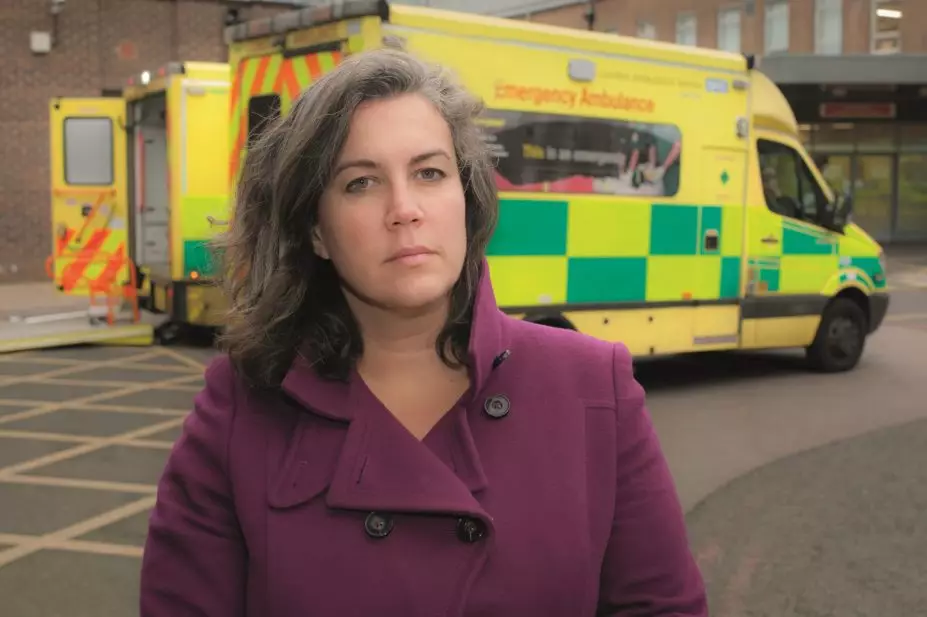
Heidi Alexander became a Labour councillor in Lewisham, south east London, in 2004, and was first elected MP for Lewisham East in 2010. She was appointed shadow secretary of state for health by Jeremy Corbyn when he became leader of the Labour party in September 2015. She supports closer working between pharmacists and GPs, is considering the evidence for a sugar tax, and would not have picked a fight with junior doctors.
What are your biggest concerns about the current government’s plans for health?
I’m really concerned about the ability of the NHS to find £22bn in savings during this parliament. Health secretary Jeremy Hunt has made some heroic assumptions about how straightforward it will be to find these savings and I don’t believe efficiency savings on this scale can be delivered without impacting on patient care. I am also concerned about the failure to see the NHS in its wider context. For example, if you don’t invest in social care and care of older people this will impact on performance in the NHS. If older people can’t get the care they need at home, they often reach crisis point and end up in accident and emergency departments. And if hospitals can’t discharge people for want of appropriate support in the community, that causes pressure across the whole system.
I don’t believe that efficiency savings on this scale can be delivered without impacting on patient care
What is Labour’s solution for the multiple funding and demand-induced crises gripping the NHS?
It’s a really complicated problem. We’re in the first year of a five-year parliament and I want to start a conversation with the public about how to fund health and care services. If we don’t answer the question of how you pay for older people’s care, we are never going to get to the position where the NHS is sustainable.
The Labour party needs to develop a range of options to discuss with the public, but I am clear that the NHS should always be free at the point of use and we don’t want charges or co-payments to be introduced.
As well as talking to people on the front line about how to reform the system and make it more efficient, I want a big, honest debate about the scale of resource that is required to ensure that everyone can access high quality care and the elderly can live with dignity and independence. The number of people in their 90s living with multiple conditions today far exceeds the number when the NHS was created, and we have a health and care system set up in the 20th century that needs to be fundamentally redesigned for the sort of health problems we are now experiencing. The NHS and care systems are inextricably linked and the financial demands can’t be separated out.
Do you support integrated budgets for the NHS and social care and how would that work?
In the last parliament, shadow home secretary Andy Burnham led the debate on integration and the government has recognised the need to join up services from home to hospital. I am interested in the work of some of the vanguard sites [new locally led models of care] and we need a proper mechanism for monitoring what works and what saves money. You could have a situation where integration provides a better outcome for the patient, but doesn’t save money, so we need to learn how to get better outcomes and save money. The principles behind these vanguards are sound and I understand that some are trying to work around the competition regulations in the Health and Social Care Act because they see them as a barrier to integration. We also need to drill down into what we mean by integration and what needs to change so that the experience of the health and care system feels more integrated to patients and their family.
Would a Labour government commit to increasing spending on public health?
It’s wrong of the government not to have adequately funded public health in the current year and going forward. If we don’t prevent problems before they start, we are building up pressure in the system. I’m very concerned about the £200m in-year cuts, and I know a number local authorities oppose them. It’s the worst possible kind of short-termism because public health services, such as smoking cessation, sexual health and weight management courses, are really important if you want to prevent problems, tackle health inequalities and achieve long-term savings in the NHS. The cuts to public health fundamentally contradict what the NHS ‘Five year forward view’ said about the need to invest in prevention. We wouldn’t have made the cuts and it’s a false economy. The Faculty of Public Health said that the cuts could cost over £1bn in the longer term and the advisory group on contraception said that the money that’s come out of sexual health services could this year cost an extra £250m, so that alone wipes out the £200m savings from the cuts.
It’s wrong of the government not to have adequately funded public health in the current year and going forward
How would you boost the low morale of healthcare staff in the financially crippled NHS?
The first thing is to fix staffing shortages. Having to do two or three people’s jobs can be incredibly stressful and disempowering. Nurses feel that wards are dangerously understaffed and we have fewer GPs per head of population than in 2010. The government’s own GP taskforce has said there’s a workforce crisis among GPs. At the last election, the Labour party set out funded plans to recruit 20,000 additional NHS and care staff. We were right then and the problem is even more urgent now.
The government should also respect the views of the independent pay review bodies, and managers need to trust and listen to staff on the front line. There’s also a question over the quality of the physical environment in which NHS and care staff are working. Staff working in a high quality environment will be more productive than those who are struggling to cope in an environment that isn’t fit for purpose. I’m concerned about the way the government is moving money from its capital programme to prop up its revenue budget because investment in buildings and the estate is really important if staff are to work effectively and efficiently.
In your experience, what do pharmacists do and what would you have them do?
There is a tendency to assume that pharmacists are just there to dispense medicines but they are highly trained medical professionals who can give advice on a whole range of health issues. That could be someone walking into a community pharmacist wanting to give up smoking or a carer wanting advice when they pick up a prescription.
Looking ahead, there could be greater opportunities for pharmacists to work more closely with GPs, for example, in seeing people for repeat prescriptions. Obviously, there need to be safe and robust processes, but best practice needs to be shared and the advantages clearly articulated so that people across the country can benefit.
Pharmacists are highly trained medical professionals who can give advice on a whole range of health issues
What have you been doing since you were selected by Jeremy Corbyn to be shadow health secretary in September 2015?
I’ve done a lot of learning. The solutions to health and care problems are to be found in GP surgeries, hospitals and care homes, not in Westminster. So it’s important for me to get out there. I’ve visited a range of hospitals, GP surgeries and met with many professional bodies, including the royal colleges, the big patient charities, the General Medical Council, Care Quality Commission and many others. Within a few weeks, it was clear that the junior doctors issue was going to be key, so I now know more about their contract than I ever thought possible. Jeremy Hunt has handled the negotiations very badly. At the start, by not giving junior doctors enough information about what the proposals meant, then by issuing press releases instead of sitting down and talking to people, and then publishing dubious interpretations of research about excess weekend mortality, which angered junior doctors. It was important to hold the government to account and I was instrumental in calling on the government to bring in independent mediators and to go to the Advisory, Conciliation and Arbitration Service.
It’s completely the wrong thing to be picking a fight with junior doctors, the people who are keeping those hospitals running
What are your top three priorities on health for 2016?
Funding, standards and social care. The money made available to the NHS through the comprehensive spending review may have sounded like a good deal, but it’s clear that the money will have to be used to fix hospital deficits and pay extra pension costs. I also need to keep a close eye around job losses in hospitals. There was an interesting letter recently from Monitor [the sector regulator for health services in England] and the NHS Trust Development Authority to providers that talked about head count reductions and we need to ask whether these job losses will be among clinical staff and nurses.
In relation to standards, the latest performance data were the worst November figures on record across a whole range of indicators. People are struggling to see their GP and waiting longer and longer in A&E, so this is a really important area to focus on.
On social care, the question is how we fix a broken system and every politician has put it in the ‘too difficult box’ over the past few years. We must find a long-term, sustainable solution to funding elderly care in this parliament. The current government promised to cap the cost of care before the election and they reneged on that commitment, and that will be of concern to a lot of people across the country.
What is one thing you would have done differently in Jeremy Hunt’s shoes?
I wouldn’t have picked a fight with junior doctors. At a time when hospitals are facing unprecedented pressure and there’s likely to be a deficit of over £2bn in hospitals at the end of 2016, it’s completely wrong to be picking a fight with the people who are keeping those hospitals running.
Does Labour support a sugar tax?
In our manifesto, we said that we wanted to introduce limits around the amounts of sugar, fats and salt in products aimed at children and to look at advertising and promotional deals. Historically, we’ve said that regulation is more important than taxation but we need to look at the new evidence about a sugar tax and whether that does lead to changes in patterns of consumption. There needs to be a step change in the amount of sugar we consume as a society. We haven’t decided about a tax, but we’re looking at the evidence.


